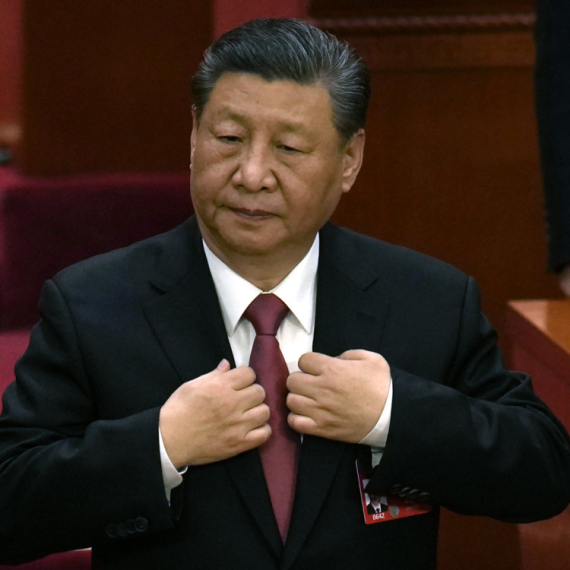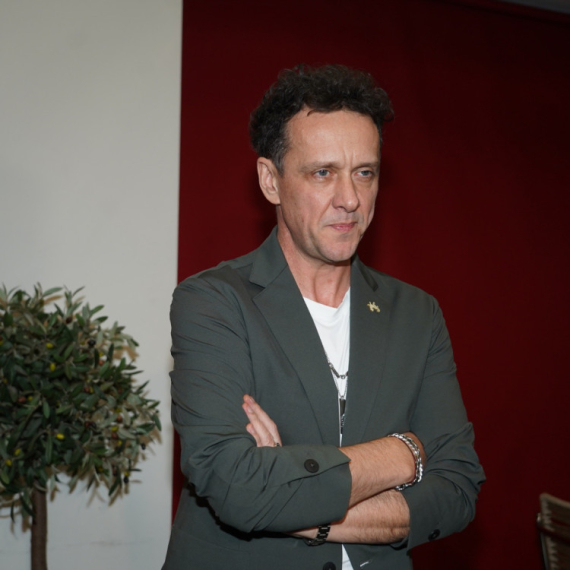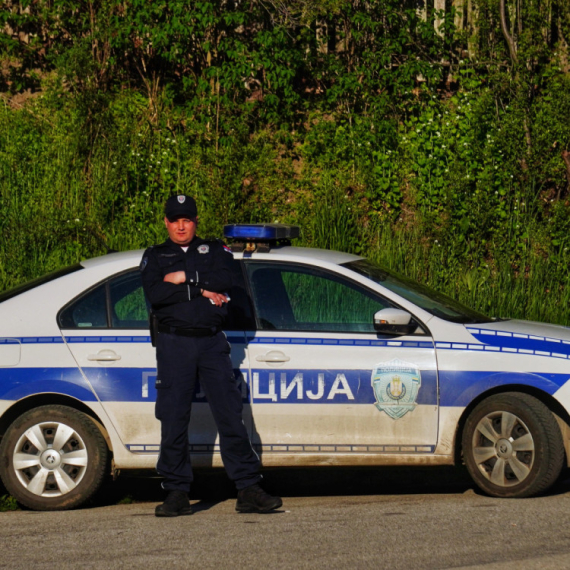Tadić says DSS changed approach to Kosovo
Boris Tadić said Saturday the DSS is making plans that are contrary to the state policy for Kosovo.
Sunday, 30.03.2008.
11:34

Boris Tadic said Saturday the DSS is making plans that are contrary to the state policy for Kosovo. The leader of the Democratic Party (DS), who is also the president of the republic, lashed out at former allies, now election rivals, Prime Minister Vojislav Kostunica's Democratic Party of Serbia (DSS) in an interview for the daily Vecernje Novosti. Tadic says DSS changed approach to Kosovo Tadic told the newspaper that he "has not strayed from this policy with a single gesture". He explained that the DSS plans he mentioned were a proposal for a functional separation of Serbs and Albanians in Kosovo, submitted to the UN recently by Minister for Kosovo Slobodan Samardzic, which, in Tadic's words, leads to a partitioning of the province. Tadic said the partition was considered as one of the options for the state policy, but that it was abandoned, while the policy of Serbia's wholeness and an offer of essential autonomy was accepted instead. According to the leader of the Democrats, in order for this policy to change, the parliament, government and president must decide, but also the citizens in a referendum, since "partition means a change of Serbia's borders". Tadic also described Samardzic's plan as dangerous, adding that "no ministry has the right to make proposals that are violating the constitution", and denied that the plan was made in collaboration with the Ministry of Foreign Affairs, controlled by his party. As for his coalition in the coming parliamentary elections, Tadic sought to dispel worries that his aligning with G17 Plus and the League of Vojvodina Social Democrats (LSV), bearing in mind these parties' policies, will put a question a mark over the future of Kosovo in Serbia. Speaking about the Kosovo debt, which G17 Plus leader Mladjan Dinkic believes Serbia should stop paying – one of the issues that heated the relations in the former ruling coalition ahead of its collapse, with the DSS vehemently opposing the idea –Tadic said a solution must be found that will not jeopardize the country's integrity, but that the citizens of Serbia should also not be made to pay for the "fake state of Kosovo". A solution, he said, would be to reach agreement with international creditors that there would be a postponement of debt payment "until Kosovo's status is defined". Tadic also said Serbia's diplomatic activity is aimed at securing that as few countries as possible recognize Kosovo Albanians' unilateral declaration of independence. Asked whether the time has come to return the ambassadors to those states that made the recognition, he said this issue "must be analyzed". "If it is decided to do so, this will be not only for the economic reasons that are always important, but also to be even stronger in fighting for our interests and making diplomatic influence defending our country's interest," Tadic told the daily. He repeated he would "immediately sign the Stabilization and Association Agreement", but that there are currently no indications that the EU will offer it, "since Europe is analyzing the path Serbia is taking". The May 11 ballot will, in Tadic's words, decide whether Serbia will be a "splendid country", or like that in the 1990s, "isolated and with very poor economic perspective". The leader of the Democrats said there is "no doubt" that at DSS-SRS government would lead to a "direct decrease of foreign investment, isolation, and downgrading of everything achieved since October 2000". Tadic seen in Belgrade at the start of his party's campaign (FoNet)
Tadić says DSS changed approach to Kosovo
Tadić told the newspaper that he "has not strayed from this policy with a single gesture".He explained that the DSS plans he mentioned were a proposal for a functional separation of Serbs and Albanians in Kosovo, submitted to the UN recently by Minister for Kosovo Slobodan Samardžić, which, in Tadić's words, leads to a partitioning of the province.
Tadić said the partition was considered as one of the options for the state policy, but that it was abandoned, while the policy of Serbia's wholeness and an offer of essential autonomy was accepted instead.
According to the leader of the Democrats, in order for this policy to change, the parliament, government and president must decide, but also the citizens in a referendum, since "partition means a change of Serbia's borders".
Tadić also described Samardžić's plan as dangerous, adding that "no ministry has the right to make proposals that are violating the constitution", and denied that the plan was made in collaboration with the Ministry of Foreign Affairs, controlled by his party.
As for his coalition in the coming parliamentary elections, Tadić sought to dispel worries that his aligning with G17 Plus and the League of Vojvodina Social Democrats (LSV), bearing in mind these parties' policies, will put a question a mark over the future of Kosovo in Serbia.
Speaking about the Kosovo debt, which G17 Plus leader Mlađan Dinkić believes Serbia should stop paying – one of the issues that heated the relations in the former ruling coalition ahead of its collapse, with the DSS vehemently opposing the idea –Tadić said a solution must be found that will not jeopardize the country's integrity, but that the citizens of Serbia should also not be made to pay for the "fake state of Kosovo".
A solution, he said, would be to reach agreement with international creditors that there would be a postponement of debt payment "until Kosovo's status is defined".
Tadić also said Serbia's diplomatic activity is aimed at securing that as few countries as possible recognize Kosovo Albanians' unilateral declaration of independence.
Asked whether the time has come to return the ambassadors to those states that made the recognition, he said this issue "must be analyzed".
"If it is decided to do so, this will be not only for the economic reasons that are always important, but also to be even stronger in fighting for our interests and making diplomatic influence defending our country's interest," Tadić told the daily.
He repeated he would "immediately sign the Stabilization and Association Agreement", but that there are currently no indications that the EU will offer it, "since Europe is analyzing the path Serbia is taking".
The May 11 ballot will, in Tadić's words, decide whether Serbia will be a "splendid country", or like that in the 1990s, "isolated and with very poor economic perspective".
The leader of the Democrats said there is "no doubt" that at DSS-SRS government would lead to a "direct decrease of foreign investment, isolation, and downgrading of everything achieved since October 2000".






















































Komentari 9
Pogledaj komentare